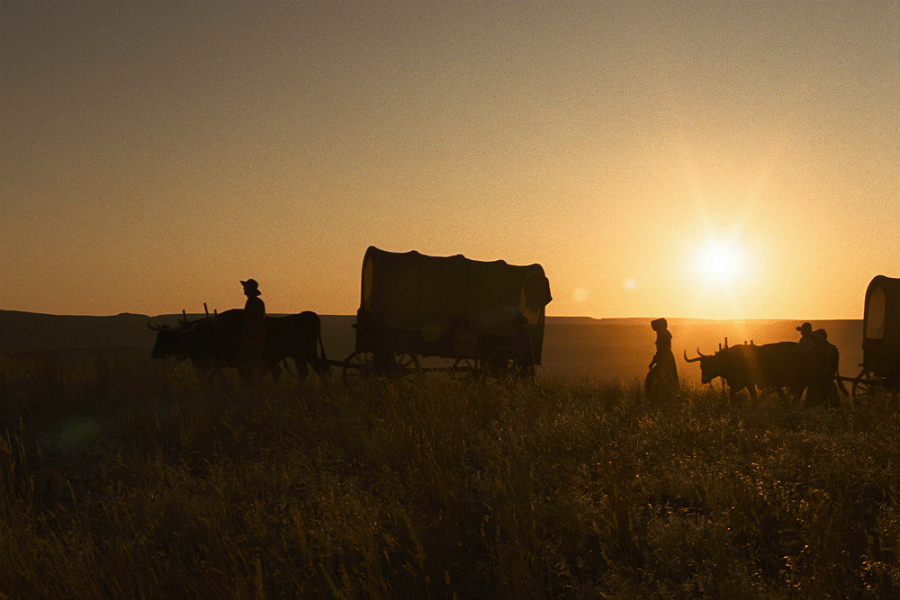Kelly Reichardt Season on Film4

In spite of himself, Liverpool filmmaker DW Mault finds reason to be thankful with Film 4′s new season…
Cinema exists in the spaces between reality, where form answers questions never asked, but simply must be. In a week where the Cannes Film Festival answered our questions with the possibilities of dreams to come, I have searched for the answer to a question that should, perhaps, never be answered. Why Thierry Frémaux (who recently revealed the titles for the festival’s 65th edition), why? You give us 21 films from masters past, present and future. Films to live, die and dream for. But the very idea that there are no films ready from female auteurs?
Which leads to the other question we dance around when we talk about cinema but never broach. The GOAT in the corner… Who is the Greatest Of All Time? That’s for another day (that’ll never happen, in the same way Shane Meadows will never grasp the idea of a universal language and grammar of cinema existing. Just ask Hitchcock and Truffaut). We live in the end days of the hegemony of anglo-saxon narrative. A time when Mark Lawson et al thinks nothing of talking about CINEMA, when in fact he means Hollywood. Joining him in this pernicious lie are the likes of Helen Mirren and Terence Davies (who should know better). We live in the world and CINEMA exists in that world, not the confines of league tables that tell us the mark of great cinema is the film raking in the most money.
In America, a country so heartily represented on the aforementioned Cannes list, there just so happens to reside someone akin to a glimmer of a hope. A director working on the fringes of a system, which mostly chooses steadfastly to ignore her, who works on films in her summer holidays, while at the same time ploughs the lonely furrow of making cinema that allows us to think and hope and dream, that when Malick dies, there in fact lies a chance that we are not alone.
It is now I’ll unburden myself of this secret, this name, this woman: Kelly Reichardt. There I said it (I feel better already). She is four films in and will not stop (kinda like Yun-Seok Kim in Hong-jin Na’s unbelievable nightmare: The Yellow Sea), she’s going to come and come and never be co-opted to the state that exists when you accept the Sophie’s Choice that is the idea of making a film for teenage maleficence.
Film Four, in a move that makes me second guess the perception that I live in a country that looks on cinema as a second class entertainment, compared to mother France; has elected to show all of Kelly Reichardt’s four films over two nights (starting tonight).
Endings tell us of beginnings to come. The overriding sense of Reichardt’s characters is one of stillness in action and reaction; a motion controlled by escape of their past and futures. Possibilities are offered even as they are destroyed; which she turns inward to attack her protagonist’s sense of self and hopeful transgression. Reichardt finds true/pure cinema in the act of negating what mainstream audiences accept from their narrow expectations of ‘going the pictures’…
Her gelastic debut feature, River of Grass (1994), forces us to look judgmentally at a couple so desperate to feature in their own road movie that they run before the inevitable crime to come. Old Joy (2006), is about two competing narratives in which intertwining and antagonistic avenues of masculinity equipoise: the rebel-without-a-cause and the midlife crisis. The score by Yo La Tengo, apocalyptic and abstracted, constantly points at duelling inconsistencies. Wendy and Lucy (2008), a primary echo of Steinbecks’s Travels With Charley, focuses on America between the fault lines of economic disaster and love, which journeys within and without misery and all too real ill-judged experience.
Film Four ends the season with the UK premiere of Meek’s Cutoff (2010). A story which has the mythical shape of a Fordian western steered through the contours of the repetitive rigors of Samuel Beckett. The pioneering protagonists are lost in the forbidding, desert landscape of the Oregon Trail circa 1845, but their real journeys – ethical and spiritual both – take place largely within their private existence.
Reichardt is bringing to reality a new aesthetic as she seems poised to claim her land as the cinematic poet laureate of the unseen poor, who traverse through an America at its most voluminous with the negative hope that seems ripe for reaping but ultimately is unforgiving.
DW Mault
The Kelly Reichardt season starts tonight at 10.50pm on Film4





